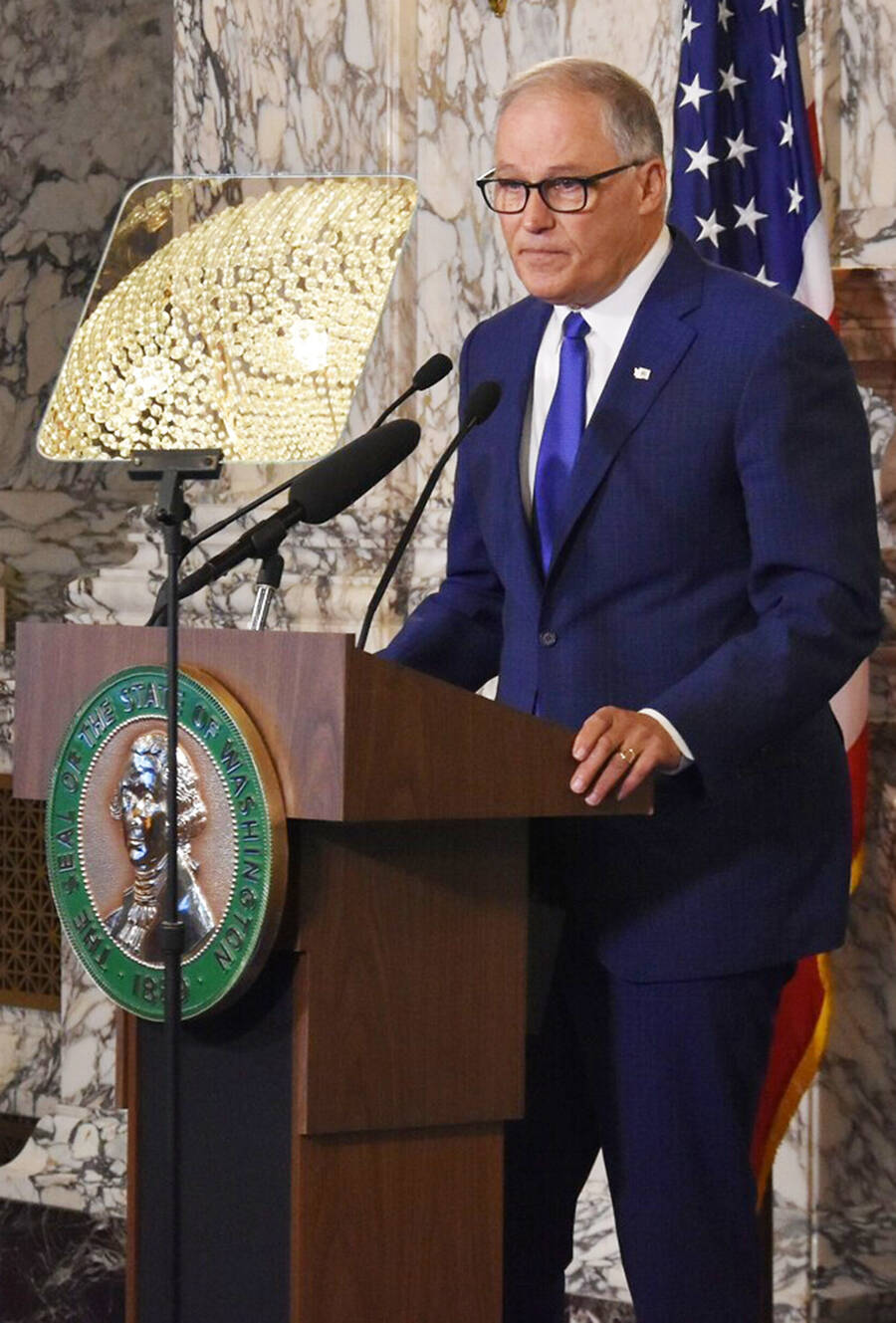Immediate action must be taken to address climate change, the housing crisis, transportation and education, Gov. Jay Inslee said in his annual State of the State address Jan. 11.
“We face a variety and dimension of demands greater than ever as we enter 2022,” he said. “We must take action this day to keep and strengthen our commitments to those in need right now and in the future.”
With a 2021-23 budget supplemented with leftover COVID-19 relief funds and new federal revenue sources, Inslee said legislators must act quickly to address big-ticket issues.
Reflecting on the natural disasters Washington residents faced in recent years, Inslee stressed the importance combating climate change and funding clean energy projects, such as $324 million to support ferry electrification and $187 million to restore salmon populations.
“When I look into the eyes of people who have lost their home and see the pain they have, that’s the pain of climate change,” he said. “We have to do everything we can to fight it.”
Inslee proposed spending nearly $800 million to address economic disparities and the affordable housing crisis. He emphasized the need for an increased access to safe housing for homeless individuals and removal of legal barriers obstructing construction of higher-density dwellings such as duplexes and townhomes.
“If our children and grandchildren are ever going to afford a rent or mortgage, we need more affordable housing,” he said.
Reacting to Inslee’s goals, Senate Republican Leader John Braun, R-Centralia, said members of his party want to return Washington to an affordable state. “Just buying food, or gas, or housing, or heating your house has become difficult for many,” he said. “We need to do things within our state to drive those costs down.”
Addressing constituents virtually, Rep. Chris Gildon, R-Puyallup, called for tax breaks and an end to restrictions imposed by Inslee. “After almost 700 days of emergency rule, it’s apparent that many people across our state feel that our system of government has betrayed them,” he said. “That their voices no longer matter.”
Gildon argued for the passage of House Bill 1772, which would give the legislature the power to terminate a long-term state of emergency. In addition, Gildon advocated for eliminating the long-term care payroll tax as well as the business and occupation tax on manufacturing, a position echoed by Sen. Judy Warnick, R-Moses Lake.
“If we cannot do something for the manufacturers, the job creators in the state of Washington,” Warnick said, “then we’re failing not only those businesses, but failing those people who work for them.”



